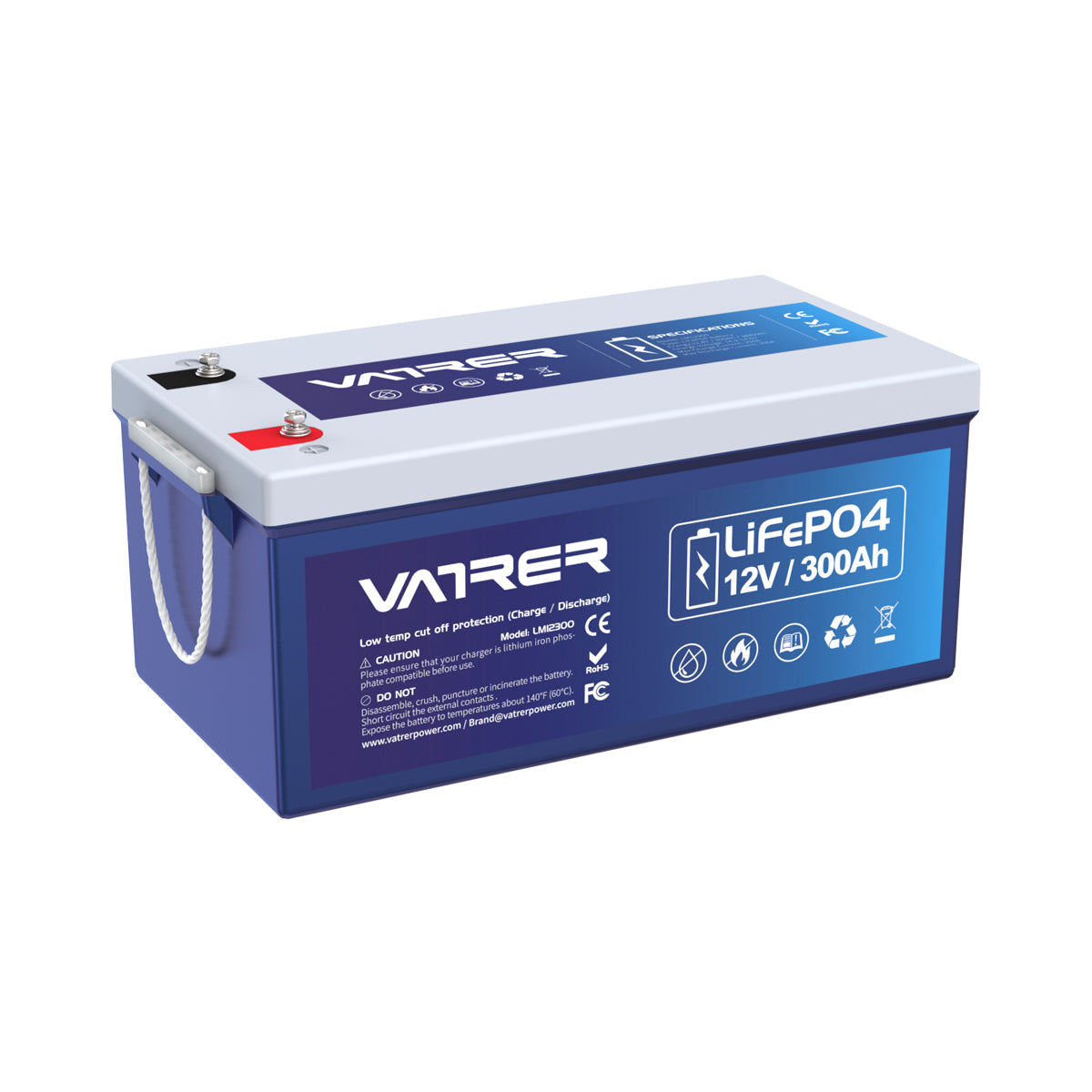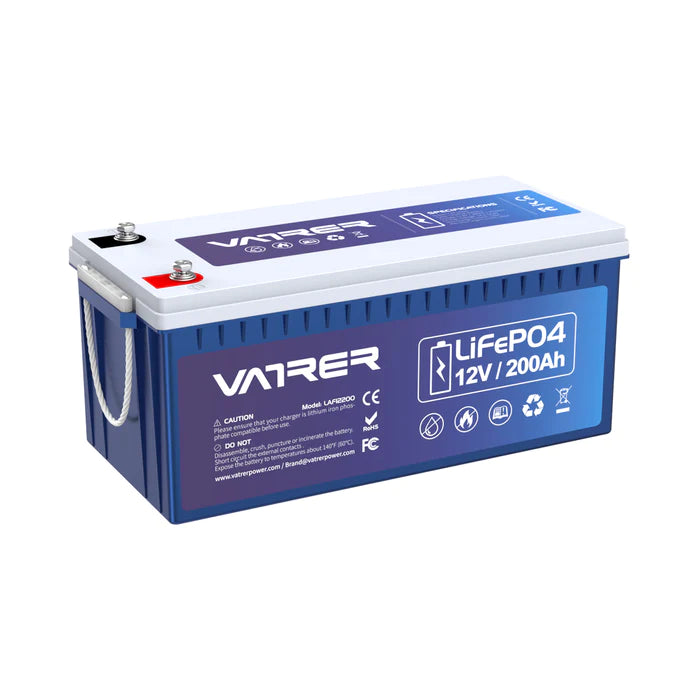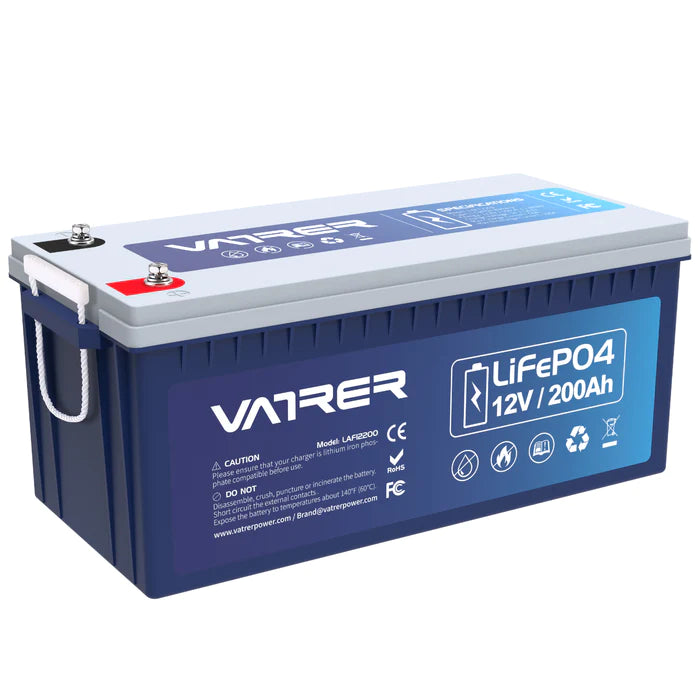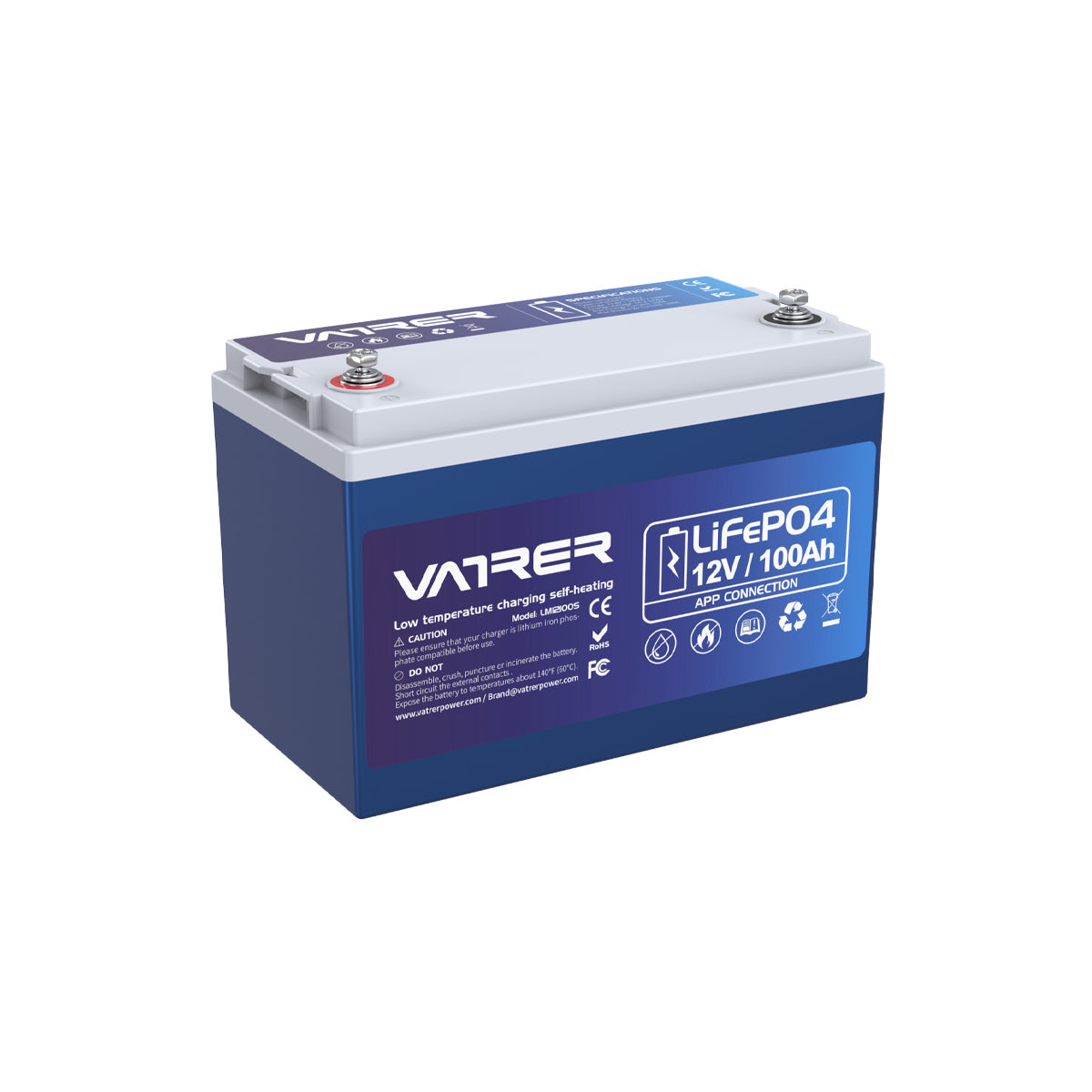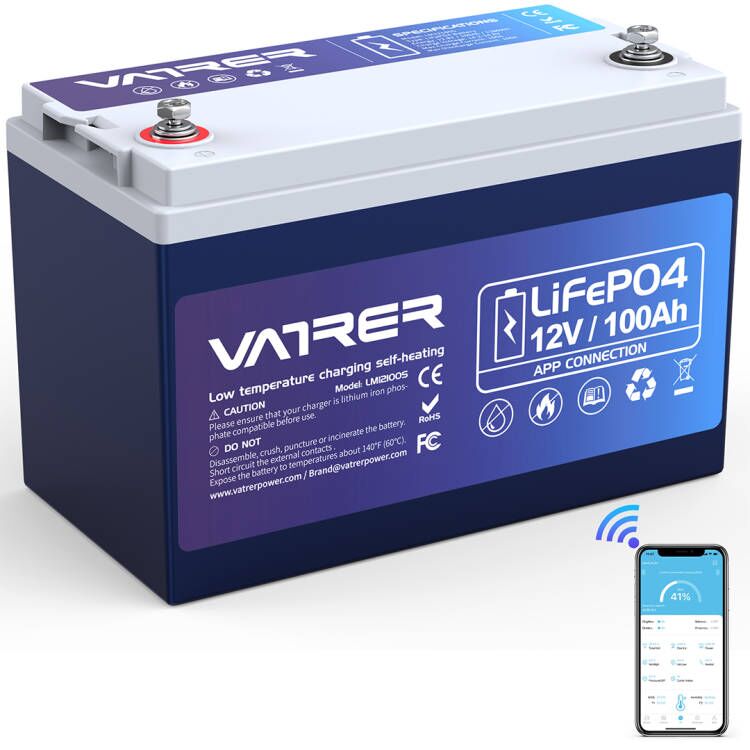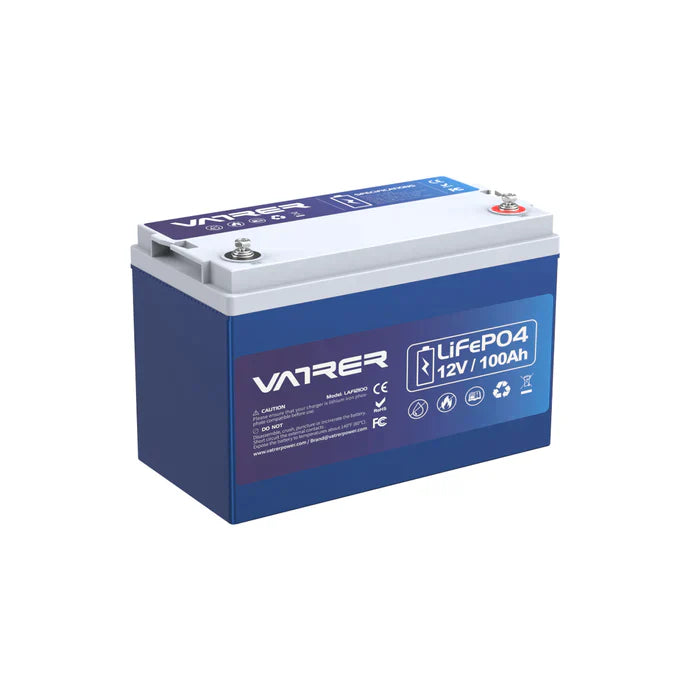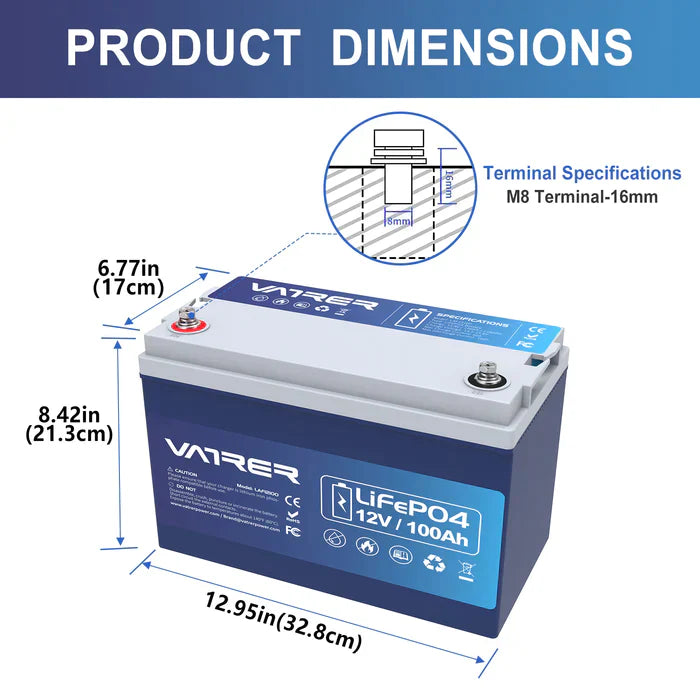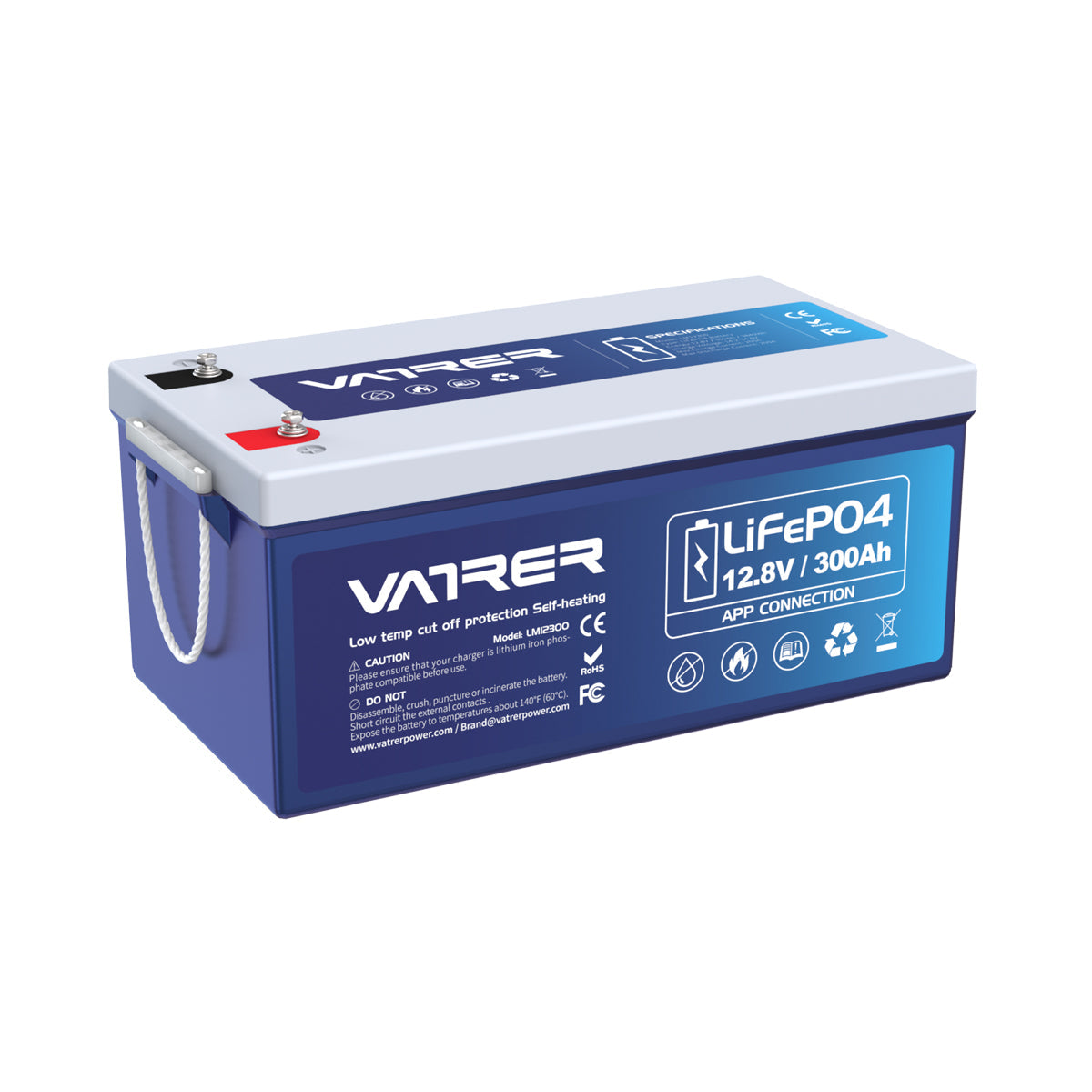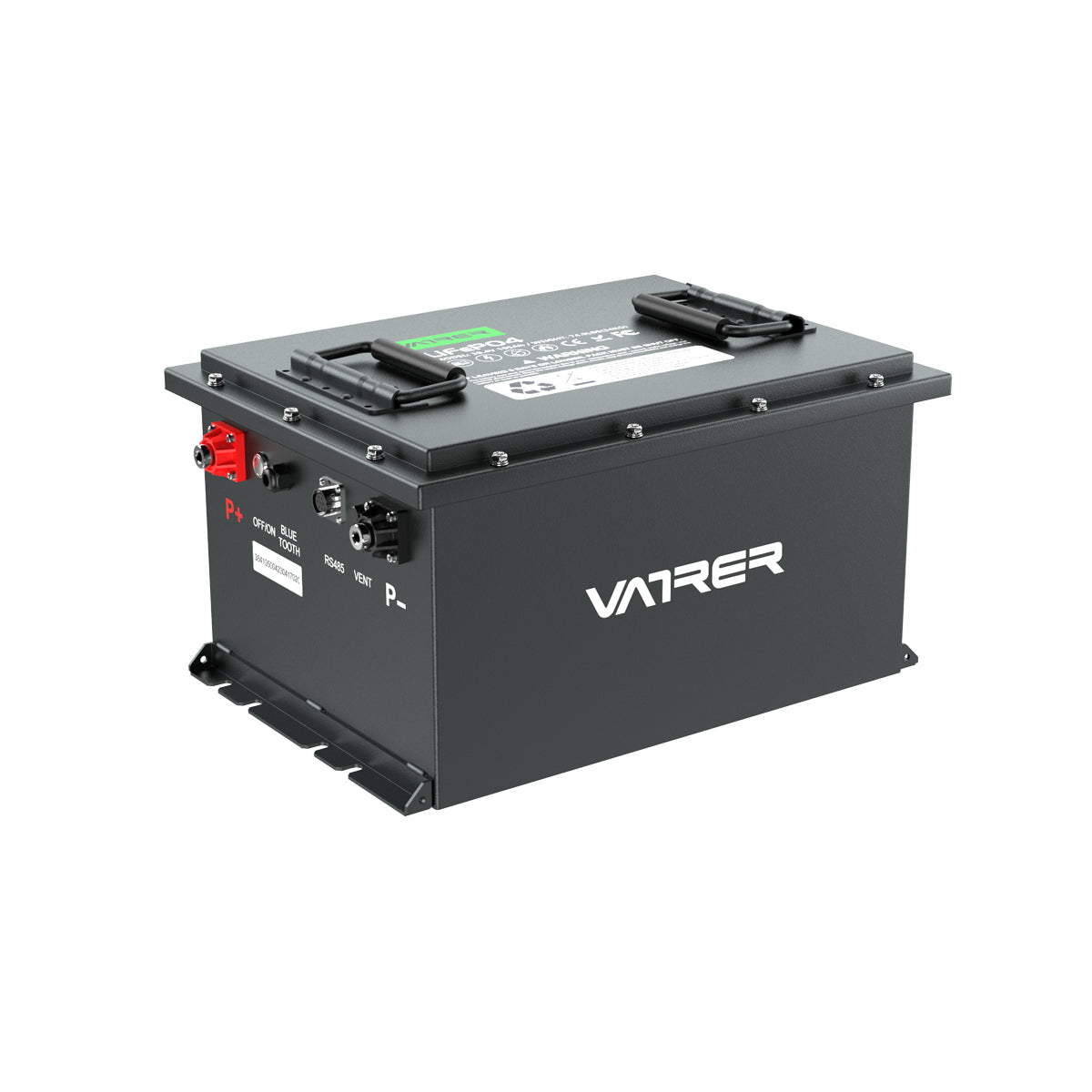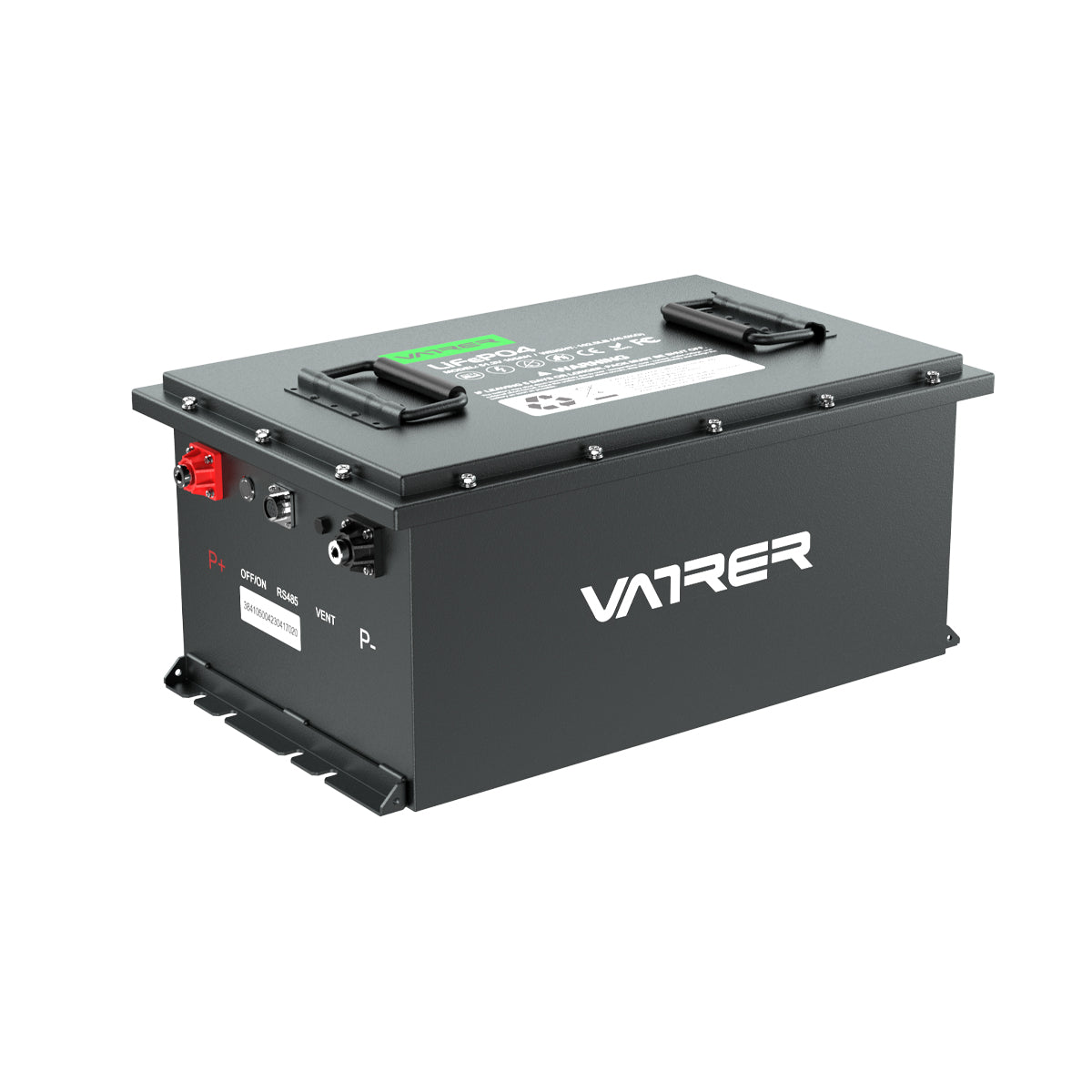Table of Contents
- Is it worth getting a battery with solar panels?
- 1. Energy Independence
- 2. Increased Self-Consumption
- 3. Backup Power
- 4. Time-of-Use Optimization
- 5. Environmental Benefits
- Which batteries are best for solar panels?
- Factors to Consider when Choosing Solar Batteries
- How many batteries do you need to run a house on solar?
- Are solar batteries worth it 2024?
- 1. Energy Independence
- 2. Financial Savings
- 3. Environmental Benefits
- 4. Battery Technology Advancements
- 5. Financial Considerations
- How much does a solar backup battery cost?
- What is the lifespan of a solar battery?
- Vatrer 51.2V 100Ah LiFePO4 Lithium Solar Battery
- Conclusion
When it comes to harnessing the power of solar panels, choosing the right battery is crucial for maximizing energy storage and utilization. In this blog post, we will delve into the topic of the best batteries for solar panels, highlighting key factors to consider and exploring the benefits they offer.

Is it worth getting a battery with solar panels?
Absolutely, investing in a battery along with solar panels can be a worthwhile decision. Here are some reasons why it's worth considering:
1. Energy Independence
With a battery, you can store excess solar energy generated during the day and use it during nighttime or when sunlight is limited. This reduces your reliance on the grid, providing a level of energy independence and ensuring a continuous power supply.
2. Increased Self-Consumption
By storing solar energy, you can increase your self-consumption rate. Instead of exporting excess energy back to the grid, you can utilize it directly from your battery, reducing the need to purchase electricity from the utility company.
3. Backup Power
During grid outages or emergencies, a solar battery can provide backup power to your home. This can be particularly valuable in areas prone to blackouts or for those seeking uninterrupted power supply for critical appliances or medical equipment.
4. Time-of-Use Optimization
In regions with time-of-use electricity pricing, a solar battery allows you to store energy when rates are low and use it during peak hours when electricity prices are higher. This can lead to significant savings on your electricity bills.
5. Environmental Benefits
Using a battery with solar panels contributes to a greener and more sustainable future. By storing and utilizing solar energy, you reduce reliance on fossil fuel-based electricity generation, thereby reducing carbon emissions and environmental impact.
It's important to consider factors such as the cost of the battery, your energy consumption patterns, and potential government incentives or net metering programs in your area. A professional assessment can help determine if a battery is worth it for your specific needs and circumstances. Ultimately, a solar battery offers greater control, energy independence, and environmental benefits, making it a valuable addition to your solar panel system.
Which batteries are best for solar panels?
LiFePO4 (Lithium Iron Phosphate) batteries, are considered the best choice for solar panels. There are several reasons for this preference:
1. High Energy Density
LiFePO4 batteries have a higher energy density compared to traditional lead-acid batteries. This means they can store more energy in a smaller and lighter package, making them ideal for solar panel systems.
2. Longer Lifespan
LiFePO4 batteries have a longer lifespan compared to other battery chemistries. They can endure a higher number of charge-discharge cycles, making them more durable and cost-effective in the long run.
3. Superior Performance in Various Conditions
LiFePO4 batteries perform well in a wide range of environmental conditions, including high temperatures and extreme cold. They have excellent thermal stability, which ensures their efficiency and reliability in demanding solar panel applications.
4. Safety
LiFePO4 batteries are known for their safety features. They have a lower risk of thermal runaway or combustion compared to other lithium-based batteries, providing peace of mind for homeowners.
When considering batteries for solar panels, it's important to assess factors such as capacity, battery management systems, and load power requirements. However, overall, LiFePO4 batteries are widely regarded as the best choice due to their high energy density, long lifespan, superior performance, and safety features.
Factors to Consider when Choosing Solar Batteries
1. Battery Chemistry
Lithium-based batteries, particularly LiFePO4 (Lithium Iron Phosphate), are increasingly favored for solar panel applications due to their high energy density, longer lifespan, and superior performance in various environmental conditions.
2. Capacity
Selecting a battery with sufficient capacity is essential to store excess solar energy during peak production times and ensure a reliable power supply during low sunlight or at night. Assessing your household's energy consumption patterns will help determine the ideal capacity for your solar battery.
3. BMS (Battery Management System)
A built-in BMS is crucial for monitoring and protecting the battery from overcharging, over-discharging, and temperature extremes. It enhances the battery's safety, performance, and overall lifespan.
4. Load Power
Consider the maximum load power that the battery can handle. This determines the number and types of appliances or devices that can be powered simultaneously.
How many batteries do you need to run a house on solar?
The number of batteries needed to run a house on solar energy depends on various factors, including the energy consumption of the household and the capacity of the batteries. It's important to assess your household's energy needs in order to determine the ideal number of batteries for your specific situation.
To estimate the number of batteries required, you would need to consider the following:
1. Energy Consumption
Determine your average daily energy consumption in kilowatt-hours (kWh). This can be obtained from your electricity bills or by using energy monitoring devices.
2. Battery Capacity
Check the capacity of the batteries you are considering, typically measured in kilowatt-hours (kWh). Divide your daily energy consumption by the battery capacity to determine the number of batteries needed to store one day's worth of energy.
3. Autonomy Days
Decide on the number of days you want your batteries to provide power in the absence of solar energy. This will depend on factors such as weather patterns and your level of tolerance for relying on the grid during periods of low sunlight.
The formula to estimate the number of batteries needed is:
Number of Batteries = (Daily Energy Consumption / Battery Capacity) x Autonomy Days
It is important to note that the exact number of batteries required can vary based on the specific battery technology, efficiency of the system, and other factors. Consulting with a professional solar installer or energy expert is recommended to accurately determine the number of batteries needed to run your house on solar energy.
Are solar batteries worth it 2024?
Solar batteries have become increasingly popular in recent years due to advancements in technology, decreasing costs, and growing interest in renewable energy. Here are some factors to consider when evaluating if solar batteries are worth it:
1. Energy Independence
Solar batteries provide a level of energy independence by allowing you to store excess solar energy and use it when sunlight is limited or during grid outages. This can provide peace of mind and continuity of power supply.
2. Financial Savings
Solar batteries can help increase self-consumption of solar energy, reducing reliance on the grid and lowering electricity bills. Additionally, in areas with time-of-use pricing, batteries can enable you to use stored energy during peak hours, when electricity prices are typically higher.
3. Environmental Benefits
By storing and utilizing solar energy, batteries contribute to a greener and more sustainable future. They help reduce reliance on fossil fuels and decrease carbon emissions associated with traditional energy generation.
4. Battery Technology Advancements
Battery technology is constantly evolving, leading to improvements in energy density, lifespan, performance, and cost-effectiveness. It's important to assess the current state of battery technology and consider if the advancements expected in the coming years align with your needs and timeline.
5. Financial Considerations
The cost of solar batteries is an important factor to evaluate. While prices have been decreasing, it's essential to compare the upfront investment with the potential long-term savings and benefits that the batteries can provide.
To determine if solar batteries are worth it for you in 2024, it is recommended to consider your specific energy needs, available incentives or subsidies, the current state of battery technology, and any anticipated market changes. Consulting with a professional solar installer or energy expert can help you assess the viability and cost-effectiveness of solar batteries for your specific situation.
How much does a solar backup battery cost?
The cost of a solar backup battery can vary depending on several factors, including the capacity of the battery, the brand, the battery chemistry, and any additional features or accessories. However, to provide you with a general idea, the cost of a solar backup battery can range between $7,400 and $30,000.
It's important to note that the cost of solar batteries has been decreasing over the years, making them more accessible and affordable for homeowners. Additionally, there may be incentives, tax credits, or subsidies available in your region that can help offset the cost of installing a solar backup battery.
What is the lifespan of a solar battery?
The lifespan of a solar battery can vary depending on several factors, including the battery chemistry, usage patterns, maintenance, and environmental conditions. However, on average, solar batteries are designed to last anywhere between 5 to 15 years.
Lithium-based batteries, such as LiFePO4 (Lithium Iron Phosphate), are known for their longer lifespan compared to traditional lead-acid batteries. LiFePO4 batteries can typically last for 10 to 15 years or even more, depending on the specific brand and quality.
It's important to note that the lifespan of a solar battery is measured in terms of the number of charge-discharge cycles it can undergo before its capacity significantly degrades. A cycle refers to one full charge and discharge of the battery. The depth of discharge (DoD), which refers to the percentage of the battery's capacity that is used during each cycle, can also impact the overall lifespan.
To maximize the lifespan of a solar battery, it's recommended to avoid deep discharges and extreme temperature conditions. Proper maintenance, including regular monitoring, cleaning, and following manufacturer guidelines, can also help extend the battery's life.
It's important to consult with the battery manufacturer or a professional solar installer to understand the specific lifespan and warranty of the solar battery you are considering. They can provide more precise information based on the particular battery technology and specifications.
Vatrer 51.2V 100Ah LiFePO4 Lithium Solar Battery

Among the top contenders in the market, the Vatrer 51.2V 100Ah LiFePO4 Lithium Solar Battery stands out for its exceptional features and performance.
1. Battery Chemistry
Utilizing LiFePO4 technology, this lithium battery offers high energy density, increased cycle life, and enhanced safety compared to traditional lead-acid batteries.
2. Capacity
With a capacity of 100Ah, this battery provides ample storage for solar energy, allowing for extended periods of power usage even during low sunlight conditions.
3. Built-in BMS
The Vatrer 51.2V 100Ah Lithium Solar Battery comes equipped with a robust 100A Battery Management System. It actively monitors and safeguards the battery against common issues, ensuring optimal performance and longevity.
4. Load Power
This battery boasts a maximum load power of 5120W, making it suitable for powering a wide range of appliances and devices simultaneously.
5. Bluetooth Version
In addition to its impressive specifications, the Vatrer 51.2V 100Ah LiFePO4 Lithium Solar Battery also offers a Bluetooth version, further enhancing its usability and convenience.
The Bluetooth feature enables users to monitor the battery's status, including voltage, current, and temperature, from the convenience of their smartphones or tablets. This real-time data empowers users to make informed decisions regarding their solar power usage and optimize battery performance.
Conclusion
Selecting the best battery for your solar panel system is vital for maximizing energy storage and utilization. Lithium-based batteries, such as the Vatrer 51.2V 100Ah LiFePO4 Lithium Solar Battery, offer superior performance, extended lifespan, and advanced features like built-in BMS and high load power. The Bluetooth version adds an extra layer of convenience, allowing for remote monitoring and control. Investing in a high-quality solar battery ensures efficient energy storage and a reliable power supply for your solar panel system, ultimately contributing to a greener and more sustainable future.










